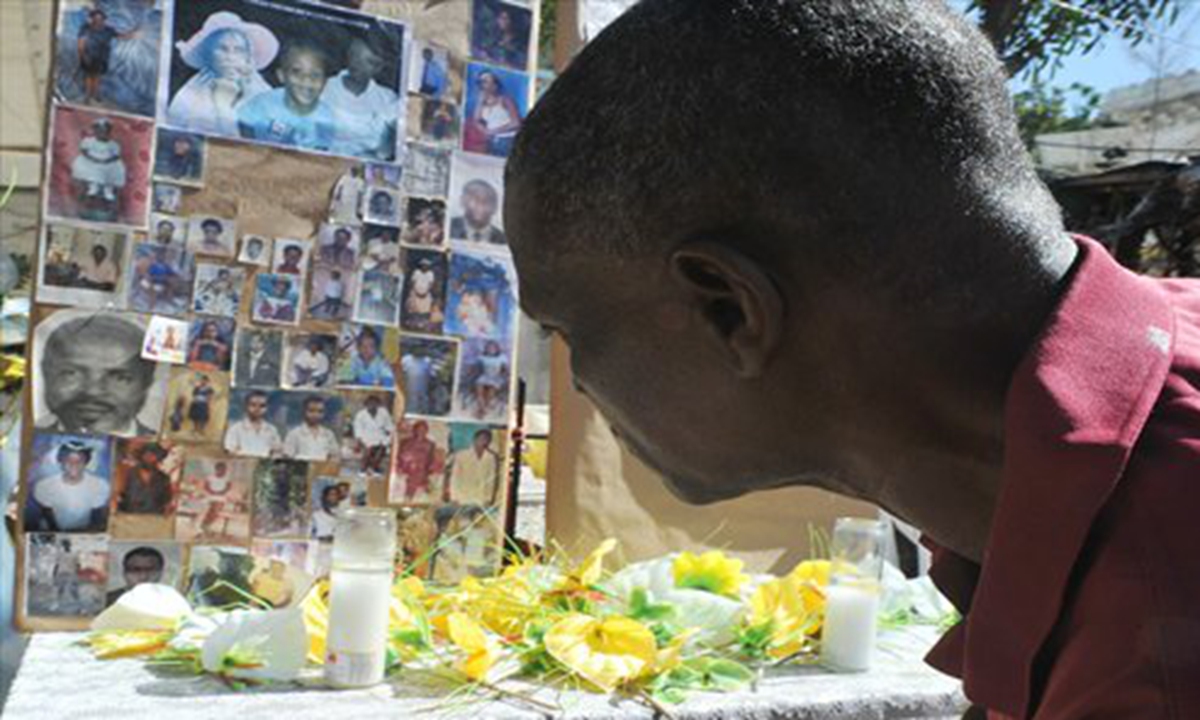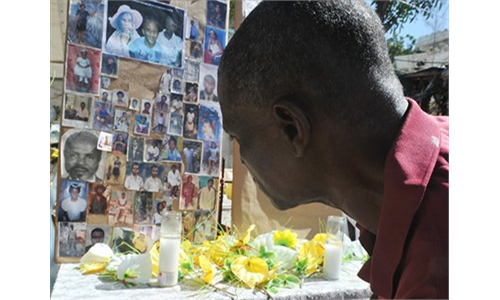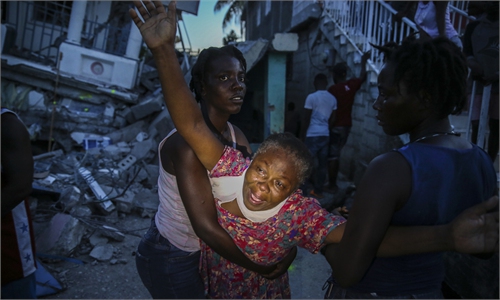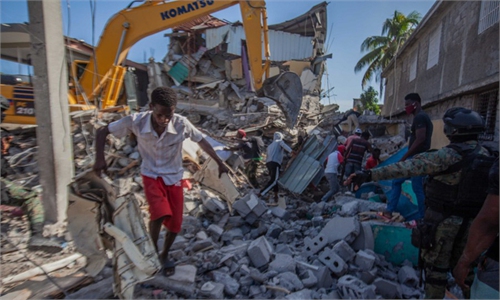Desperate search after Haiti quake
Approaching storm may pose challenge for rescue efforts in the country

A man pays his respects at a makeshift memorial for victims of the January 12, 2010 Haiti earthquake near the destroyed Cathedral of Port-au-Prince on Saturday. Photo: AFP
Rescuers in Haiti used heavy equipment and their bare hands Monday to hunt for survivors under buildings flattened two days ago by a massive earthquake that killed more than 1,400 people, while an approaching storm threatened more suffering.Flash floods and mudslides were possible as the front bore down on the Caribbean nation's southwestern peninsula, which was hard-hit by a 7.2-magnitude quake that toppled thousands of buildings early Saturday.
Hospitals have been overwhelmed with injured patients, and workers were at a loss with how they might cope with Tropical Depression Grace.
Haiti's civil protection agency gave a preliminary toll Monday of 1,419 dead and 6,900 injured in the powerful quake that struck about 160 kilometers to the west of the capital Port-au-Prince.
The earthquake also destroyed more than 37,000 homes, officials said.
"We're really not doing well psychologically. We have absolutely no idea how we are going to get through this," said 26-year-old midwife Aline Cadet, who was helping at the hospital in the hard-hit town of Port-Salut.
"There are women here who were pregnant but lost their baby because they fell or were injured," she added.
According to the US National Hurricane Center, Haiti and the Dominican Republic - which share the Caribbean island of Hispaniola - could expect five to 10 inches (approximately 13-26 centimeters) of rain from Grace, "with isolated maximum totals of 15 inches" across southern areas through Tuesday.
"This heavy rainfall may lead to flash and urban flooding, and possible mudslides," the NHC warned.
Residents faced a dilemma of staying outside to protect themselves from aftershocks, or returning to damaged buildings to shelter from Grace's heavy rain, which was soaking Haiti by Monday afternoon.
The hospital in Port-Salut made its call: The patients being treated in a courtyard were brought into the building for protection from the storm, despite the risks.
"The doctors have asked us to go inside this evening. It's not safe. There are still tremors, that's why we're outside," said Wilfried Labaye, 41.
His wife Esperance Rose Nadine, 36, was lying on the ground next to him, both of her legs broken when their home collapsed during the quake.
Haiti, still recovering from a massive 2010 tremor that devastated the capital Port-au-Prince, was already in shock from its president's assassination in July when the disaster hit.
Some aid has come in from abroad, including specialized search crews from the US as well as 15.4 tons of food, medicine and water from Mexico.
A 7.0-magnitude quake in January 2010 left much of Port-au-Prince and nearby cities in ruins, killing more than 200,000.
AFP



